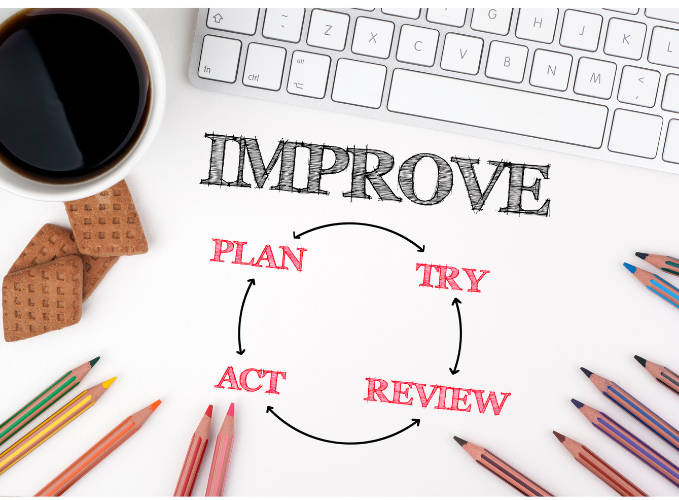ADHD and Metacognition: Learning to reflect on your thoughts and experiences with a growth mindset
 Metacognition is the awareness and understanding of your own thinking and thought processes with the goal of improving learning and performance. Put simply, it’s a way to manage your thinking. Metacognition allows you to connect the dots, see the big picture, self-evaluate and monitor, which ultimately helps you with performance and task completion. This self-awareness helps improve time management, planning, focus and other skills challenge kids and adults with ADHD. With practice and time, you will get the hang of the skills needed to apply metacognition and improve problem solving.
Metacognition is the awareness and understanding of your own thinking and thought processes with the goal of improving learning and performance. Put simply, it’s a way to manage your thinking. Metacognition allows you to connect the dots, see the big picture, self-evaluate and monitor, which ultimately helps you with performance and task completion. This self-awareness helps improve time management, planning, focus and other skills challenge kids and adults with ADHD. With practice and time, you will get the hang of the skills needed to apply metacognition and improve problem solving.
Metacognition and ADHD
Metacognition is a process related to self-awareness and is considered a key Executive Function (EF) skill because it governs behavioral output and is tied to emotional control. It is the last EF skill to fully coalesce in the late twenties for people with ADHD. In fact, researchers at University College of London found that subjects with better metacognition had more grey matter in the anterior right prefrontal cortex, an area of the brain found to be smaller in folks with ADHD. So, those with ADHD may require a bit more time and effort to strengthen their metacognitive skills. The ability for self-regulation and assessment allows you to better achieve specific goals, learn what worked well (and what didn’t) and to then apply that learning to future tasks.
Benefits of managing your thinking
Metacognitive thinking, along with self-regulation, helps you choose, monitor, and evaluate how you approach a task. It helps you measure progress and how close you are to achieving (or not) your final goal. In addition, it helps you transfer learning and information to different contexts and tasks by being more aware of strengths and challenges.
 For example, if you are writing a report for school or work, metacognition increases your awareness of your progress, possible distractions and need for more efficiency so you can make different choices. If, upon self-reflection, you notice it was way too noisy in the coffee shop to concentrate on your writing, you can move to a quieter space to finish your work more productively. When your next writing project rolls around, you will already have learned that you get better results in a quiet environment. You’ll skip the cafe and head straight to your bedroom or a nearby library.
For example, if you are writing a report for school or work, metacognition increases your awareness of your progress, possible distractions and need for more efficiency so you can make different choices. If, upon self-reflection, you notice it was way too noisy in the coffee shop to concentrate on your writing, you can move to a quieter space to finish your work more productively. When your next writing project rolls around, you will already have learned that you get better results in a quiet environment. You’ll skip the cafe and head straight to your bedroom or a nearby library.
The goal is to observe your abilities and improve your strategies to accomplish various tasks and projects. By assessing goals and outcomes, you’re better equipped to shift efforts and strategies. You can then develop, find, and allocate resources to optimize performance. The more experience you have in managing your thinking, the easier it’ll get.
Metacognition in action
Metacognition for task completion

Metacognitive processes can be applied at any point throughout the execution of a task. Therefore, you are learning and adjusting along the way.
Beforehand: Look ahead to what is in front of you: What is the goal of this assignment? Do I have what I need to work on this task? What is my first step? Second step?
During: Notice your progress: How is my plan working? Am I making progress? Do I need to make any adjustments? Where do I need help? Who will I ask for assistance? What do I know about this topic/situation/problem already that could assist me here? Where can I find the information I need?
Afterwards: Consider the process as well as the accomplishment. What did I do well? What could I have done differently?
Metacognition for social interactions
In addition to task completion, metacognitive thinking can be applied to social interactions. You create a valuable feedback loop when you practice asking yourself open-ended questions that foster self-reflection:
 “How am I feeling?”
“How am I feeling?”
“What’s helped me before that I could apply to this situation?”
“What is the impact of my words or behaviors on others?”
“Where has my attention been drawn to during this conversation?”
“What are their faces and bodies showing me?”
Tips for more beneficial metacognitive practices
1. Practice body awareness
Another way to manage your thinking and increase self-awareness is to notice your body sensations. Are you starting to feel anxious or tense? Is it time to shift gears in order to feel more relaxed?
2. Keep observations neutral
It’s very important that you don’t use self-evaluation as a pathway for self-criticism. For metacognitive abilities to be useful, they have to be neutral. Instead of asking, “Why can’t I do this differently?” ask, “How can I do this differently, and what support do I need to make this happen?”
3. Practice a growth mindset
Reframe self-evaluation from good/bad to working/not working to avoid negativity, reinforce a growth mindset and bolster resilience. Metacognitive thinking is a powerful tool which allows you to acknowledge problems without succumbing to failure mentality or difficulties and giving up. It’s a way to focus on continued learning, improving efficiency in problem solving and identifying tools and resources needed for support.
Read more blog posts:
- Raising Teens With ADHD: Redefining What ‘Success’ Means
- Low Motivation And ADHD: Using ‘GRIT’ To Tackle The Essential Tasks When You’re Just Not Interested
- Planning And Prioritizing Practices For ADHD Brains: What’s The Plan, And When Do You Start?!
Watch on Dr. Saline’s YouTube Channel:
- ADHD and Metacognition – Executive Functioning Support (ADHD Q&A with Dr. Sharon Saline)
Deeper Dive: https://drsharonsaline.com/product/motivation/ https://drsharonsaline.com/product/home-seminar/
Sources: Allen, Micah, et al. “Metacognitive Ability Correlates with Hippocampal and Prefrontal Microstructure.” NeuroImage, vol. 149, 2017, pp. 415–423., https://doi.org/10.1016/j.
